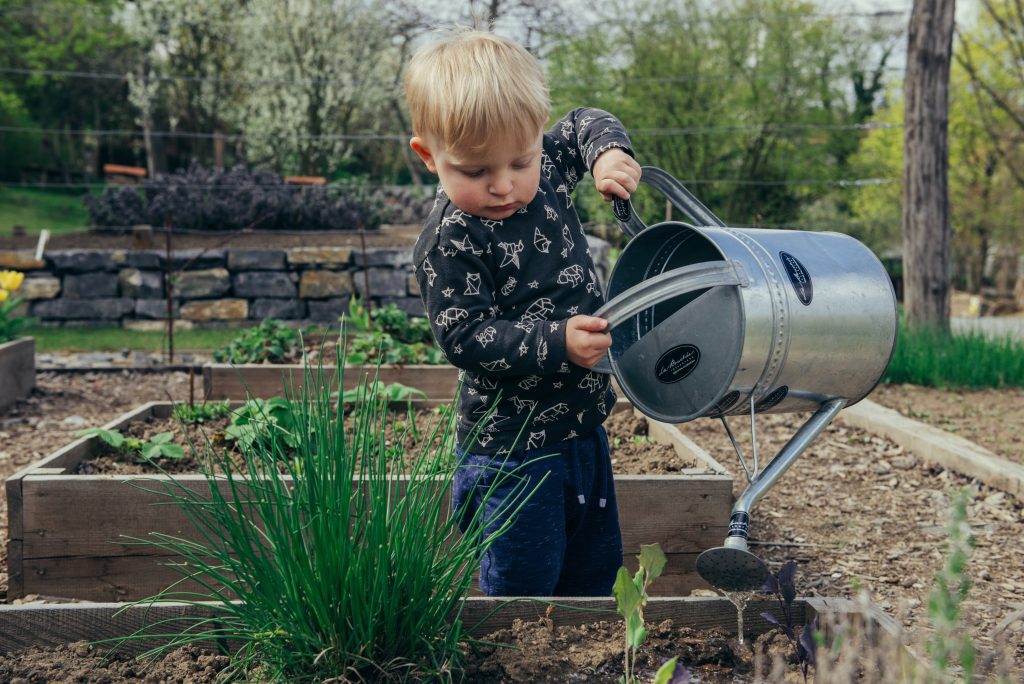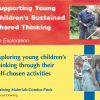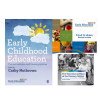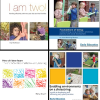Chapter 1: The centrality of play in early childhood
Back to overview of chapter resources Chapter authors Nancy Stewart Kierna Corr Julia Henderson Chapter overview Play is a fundamental in childhood, and enshrined as
In the early years, where our habits of mind and learning dispositions are formed, we can help to cultivate young children’s social imagination; supporting them to think creatively, critically and optimistically about the state of their world and their own actions. Here we draw on practical examples from Young Friends Kindergarten in Hove, East Sussex where the staff have been working on developing their hopeful ‘slow pedagogy’ and provision in this way for several years.
Boyd, D.J., Hirst, N. and Siraj-Blatchford, J. (eds) (2017). Understanding Sustainability in Early Childhood Education: Case Studies and Approaches from across the UK. Abingdon: David Fulton/Routledge.
Hadland, C. (2020). Creating an Eco-Friendly Early Years Setting: A Practical Guide. London:
Routledge.
Huggins, V. and Evans, D. (eds) (2018). Early Childhood Education and Care for Sustainability. London: Routledge.
The following websites offer ideas to help settings towards sustainability.
Eco Wheel toolkit is designed to help ECEC settings become more sustainable.
United Nations Sustainable Development Goals: 17 Goals to Transform our World
The UN Earth Summit in Rio (1992)
Young Friends Kindergarten, Hove.

Back to overview of chapter resources Chapter authors Nancy Stewart Kierna Corr Julia Henderson Chapter overview Play is a fundamental in childhood, and enshrined as
Back to overview of chapter resources Chapter authors Verity Campbell- Barr Sasha Tregenza May Chapter overview In this chapter, we explore and analyse developments in
Back to overview of chapter resources Chapter authors Sue Allingham Nicola Brinning Chapter overview This chapter is built around the policy contexts of Wales and
Back to overview of chapter resources Chapter authors Elizabeth Henderson Emma Gordon Helen McKinnon Jacqueline Bremner Maggie MacDonald Chapter overview Taking a Scottish perspective, this
Back to overview of chapter resources Chapter authors Cathy Nutbrown Becky Cook Chapter overview Early childhood education settings are increasingly, developing work with parents to
Back to overview of chapter resources Chapter authors Aline-Wendy Dunlop Lisa Barnes Myra McRobbie Chapter overview In this chapter we have chosen a transitions lens
Back to overview of chapter resources Chapter authors Jan Georgeson Emma Short Helen Adams Kate Ullman Chapter overview This chapter traces a brief history of
Back to overview of chapter resources Chapter authors Stella Louis Sally Cave Nasma Meah Chapter overview This chapter outlines what anti-discriminatory practice is and the
Back to overview of chapter resources Chapter authors Shaddai Tembo Fifi Benham Chapter overview This chapter examines the role of gender and LGBTQ+ inclusive practice
Back to overview of chapter resources Chapter authors Kathy Sylva Lesley Curtis Chapter overview This chapter explores the role of Children’s Centres (CCs) in serving
Back to overview of chapter resources Chapter authors Nathan Archer David Yates Chapter overview When considering the future, looking back at recent changes in the
Back to overview of chapter resources Chapter authors Elizabeth Wood Louise Kay Jessica Travers Chapter overview This chapter draws on international research to indicate how
Back to overview of chapter resources Chapter authors Cathy Nutbrown Beatrice Merrick Chapter overview This chapter is a little different from the others. It considers






Early Education
2 Victoria Square
St Albans
AL1 3TF
T: 01727 884925
E: office@early-education.org.uk